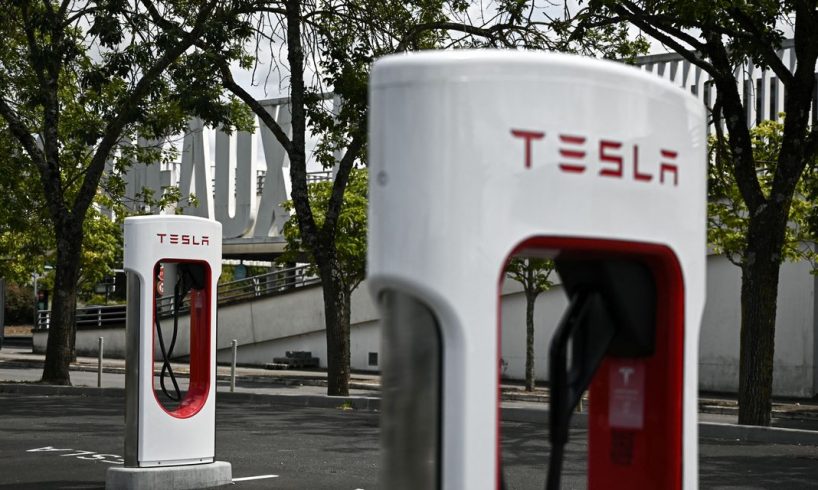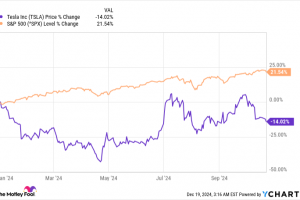
Text size
Tesla stock tends to rise faster than the Nasdaq when the index is going up, but it falls faster when the benchmark declines.
Philippe Lopez/AFP via Getty Images
Shares of EV leader
Tesla
have taken a beating for the past couple of weeks, for reasons related both to the company and to what is happening in financial markets. But a separate factor pushed them down on Friday.
Tesla (ticker: TSLA) stock dropped 1.7% to $215.49, while the
S&P 500
was flat and the
Nasdaq Composite
was down 0.2%. The loss marked the sixth consecutive drop for Tesla stock and the 13th in the past 14 trading sessions.
The market deserves some of the blame. Coming into Friday trading, the Nasdaq was off about 7% for the month, and Tesla stock tends to be more volatile than the index. It rises faster when things are good and falls harder when conditions worsen.
Elon Musk deserves some blame, too. On Tesla’s second-quarter earnings conference call in July, Musk reiterated his stance that growth in sales volume was more important than pricing for Tesla. That stoked fears of more price cuts and profit-margin erosion.
After cutting prices aggressively to start 2023, Tesla reported operating profit margins of just over 10% in the first half of 2023, down from about 17% in the first half of 2022.
“For those who stubbornly cling to the notion that Tesla price cuts are somehow good for Tesla valuation, look at Tesla stock versus peers since Tesla’s July 19 conf call,” wrote
Future Fund Active ETF
(FFND) co-founder,…
..






